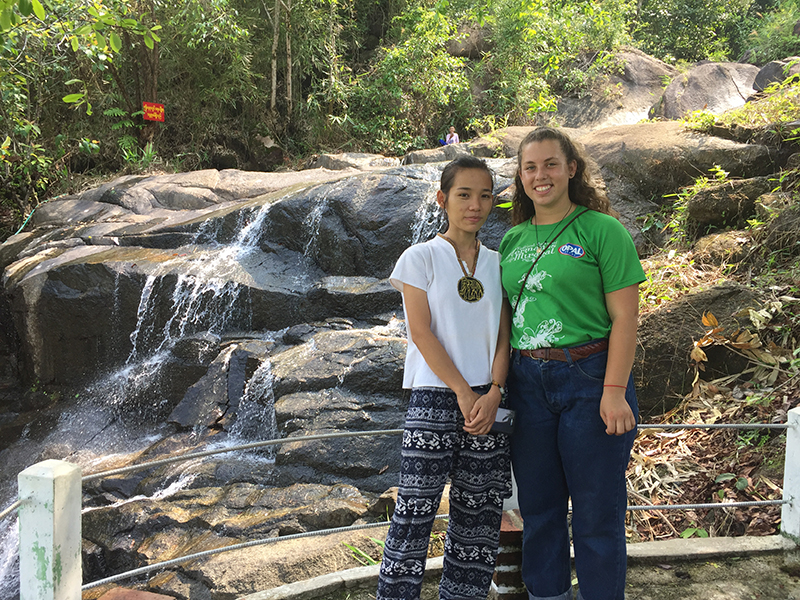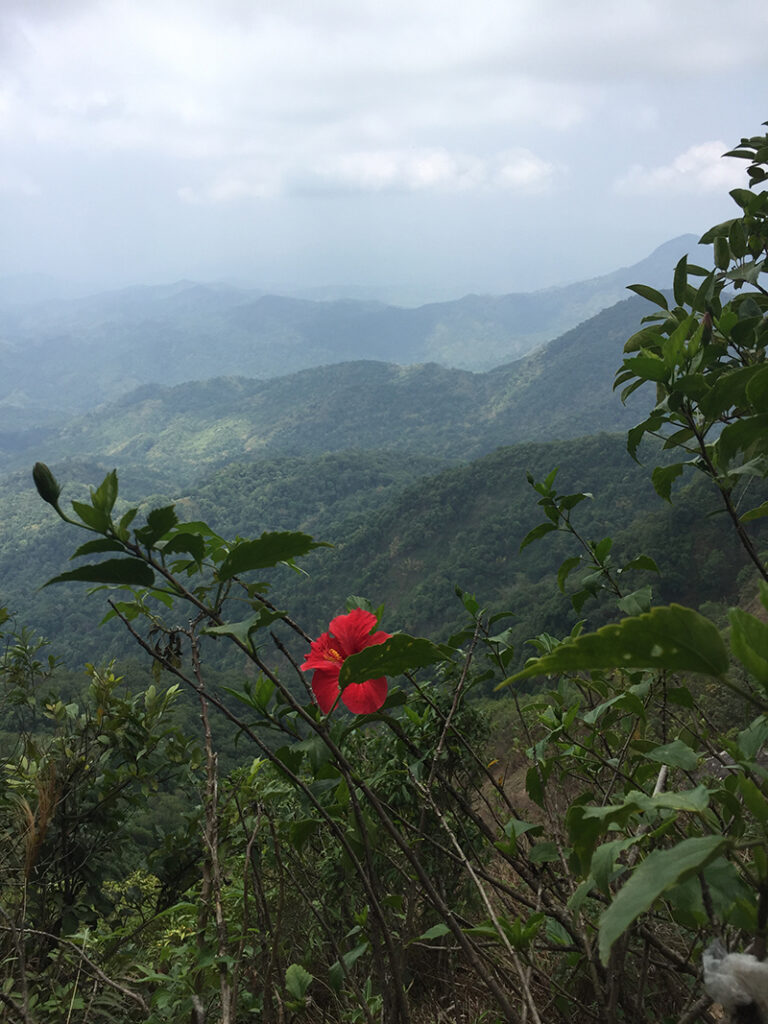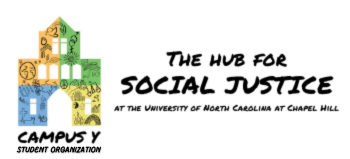
The Global Engagement Fellowship (GEF) supports UNC Chapel Hill students conducting international social-justice oriented summer projects. The following blog was written by GEF recipient Leah Simon, a rising senior majoring in Global Studies.
The Thai-Myanmar Friendship Bridge is a chaotic overpass connecting the two nations in which cars switch lanes at the halfway point in order to be in accordance with the respective traffic laws. During my cross over from Thailand to Myanmar, a man approached me asking if I needed help. I am used to this overt kindness being a symptom of a tourist trap and I was initially very resistant to him and weary of his intentions. He was persistent, however, continuing to prod information out of me in his broken English: Where I was going? How would I get there?
He directed me to a ticket desk, helped me exchange my money in his broken English, and told me that I would have to wait a few hours for a bus. By that point I was sweaty from my journey carrying two large bags through a bustling customs process on the bridge from Mae Sot, Thailand to Mwaddy, Myanmar. Sitting in the hot sun for an unknown amount of time didn’t seem like such a good idea anymore. Then he made me an offer: $30 to transport me solo in a car from the border town to a city where I would meet my Burmese-speaking friend four hours away. I quickly calculated the exchange rate on my iPhone app to verify the price and after assessing the situation, I took a chance and accepted the ride.
After entering his air-conditioned van, I felt instant relief. For someone unaccustomed to the humidity here, it has been impossible for me to be outside for more than ten minutes without bathing in my own sweat. And even though, hypothetically, it should be rainy season and things should have cooled off a little, climate change has delayed the seasonal change more and more each year, making it less predictable to know when to prepare your raincoat or umbrella for the day.
 After a short stretch of time, we passed a house and the driver rolled down his window to greet someone who seemed to me like an average street vendor, but their interaction was almost too familiar. It turned out he was chatting to with his grandmother, whom he introduced me to, while she prepared fresh sugar cane juice for us straight from the grinder. Moments later a second man joined us carrying a bag of grilled pork and dosas. I was not expecting an offer, but they immediately insisted I join them in their enjoyment of these snacks. A bit later, I requested help getting a Myanmar SIM card, which they unexpectedly paid for and installed for me. I could never have anticipated to be greeted with such warmth. My new acquaintances reminded me of this culture’s remarkable hospitality and friendly business practices.
After a short stretch of time, we passed a house and the driver rolled down his window to greet someone who seemed to me like an average street vendor, but their interaction was almost too familiar. It turned out he was chatting to with his grandmother, whom he introduced me to, while she prepared fresh sugar cane juice for us straight from the grinder. Moments later a second man joined us carrying a bag of grilled pork and dosas. I was not expecting an offer, but they immediately insisted I join them in their enjoyment of these snacks. A bit later, I requested help getting a Myanmar SIM card, which they unexpectedly paid for and installed for me. I could never have anticipated to be greeted with such warmth. My new acquaintances reminded me of this culture’s remarkable hospitality and friendly business practices.
For me though, it is hard to distinguish this sense of hospitality towards western-appearing guests from the attitude towards other Burmese citizens or, more importantly, ethnic minorities living within the country, given the terrible history of violence and upheaval of these groups that continues to persist to this day. Furthermore, I wonder to myself if even non-western-appearing tourists are treated with the same sense of hospitality and respect I received and what has influenced this over the years.
Is it based in a colonial history perhaps? I also had a similar experience in Uganda and felt similarly conflicted about my treatment by locals, not knowing exactly what to make of it. For now, I have come to the conclusion for myself that there are a combination of factors influencing each other for which I have no academic basis. From what I have both seen and experienced, there is a generally hospitable spirit here, but simultaneously, a history of projecting a greater level of respect and protection towards western-appearing foreigners while conversely projecting the opposite towards the country’s minority ethnic groups. This divergence has caused so many citizens to flee and seek refuge in other parts of the world (if they are fortunate enough to have the opportunity), including Chapel Hill, NC.
Overall this dichotomy serves as a representation of my experience here so far: layered and complicated. As I meet with NGOs and collect language and cultural preservation resources of the Karen ethic group, I have witnessed so many outcomes of hate, but also outcomes of great love. I am trying my best to make what I can of them for now, while avoiding taking everything at face-value.
Myanmar is a hidden, layered onion that has so much to share with the world the more further we can peel it back and explore. I believe there is a lot left to be discovered because of years of closed borders following their independence from colonization as well as fake news (both domestically produced as censorship and internationally projected), all muddying the water of truth. I’m accustomed to many stares from the locals, but every so often I make eye contact with other strangers working in this country and in those moment there is a mutual acknowledgement that we are both steadily contributing to peeling back the stiff layers of this deeply-bedded onion of a country as we struggle to make sense of it all and report our findings of how we perceive the truth.

One Response to “GEF blog: Burmese hospitality”
Glenn D Simon
Leah,
This is an insightful and well-written blog about your experiences travelling in Myanmar and Thailand – no wonder so many tourists seems to be drawn to that part of the world- it is, as you say, a welcoming experience. Thank you for sharing, and we look forward to hearing about other your other adventures, and seeing the resources you have managed to retrieve for the Karen Community here in Chapel Hill and Carrboro.